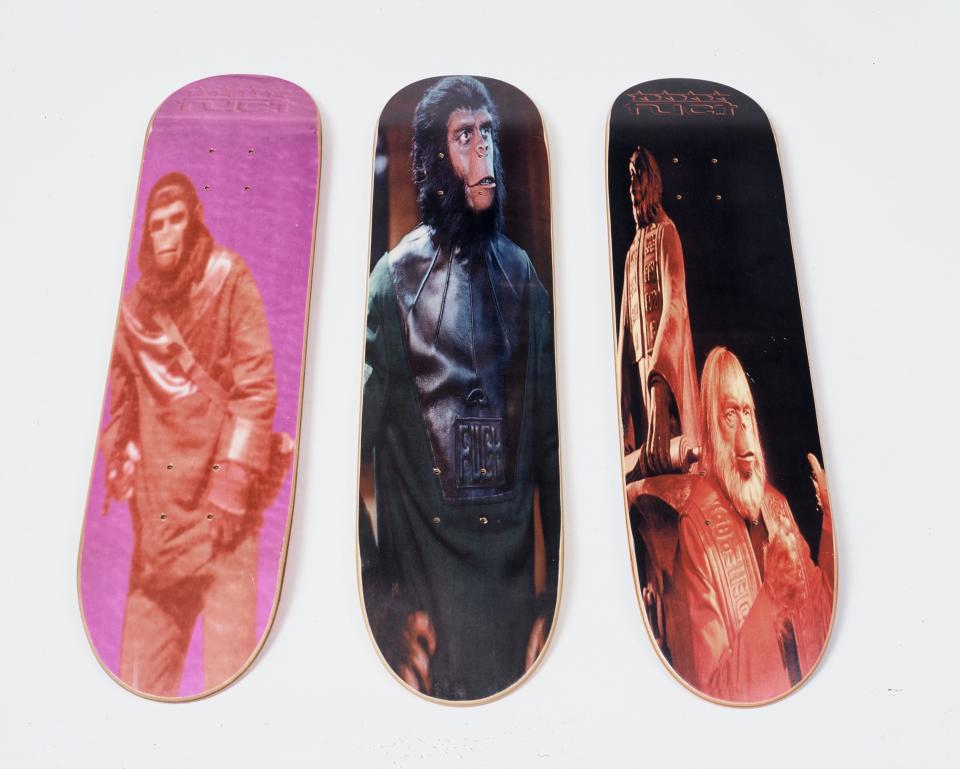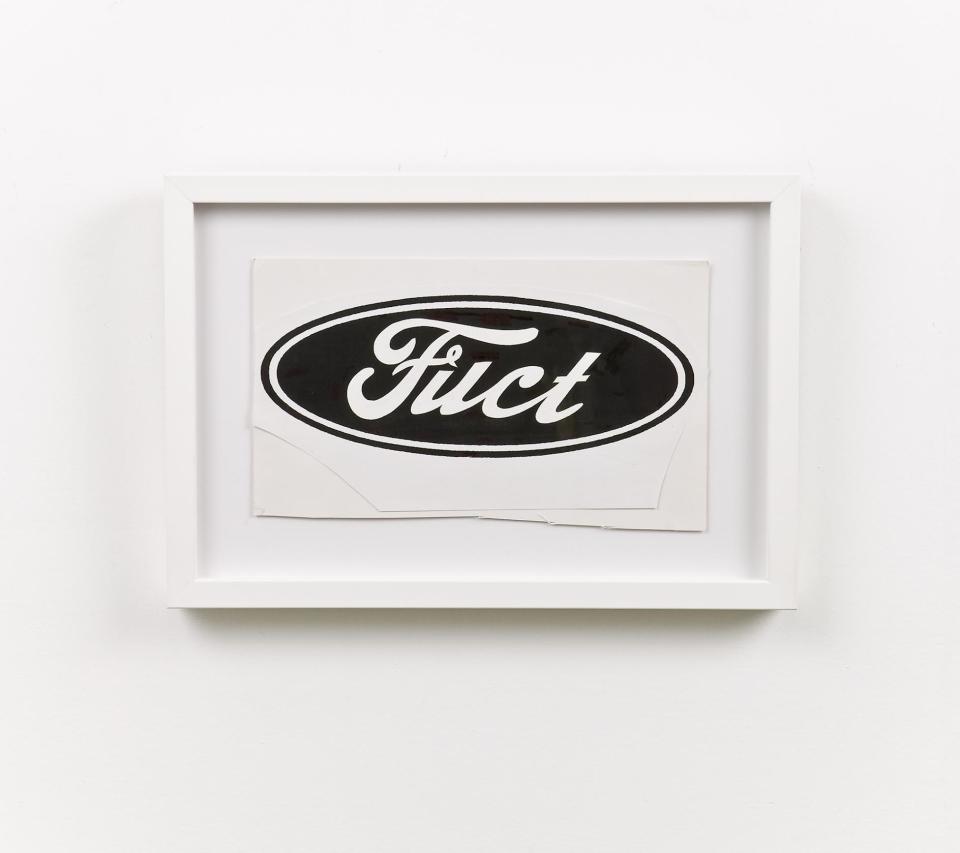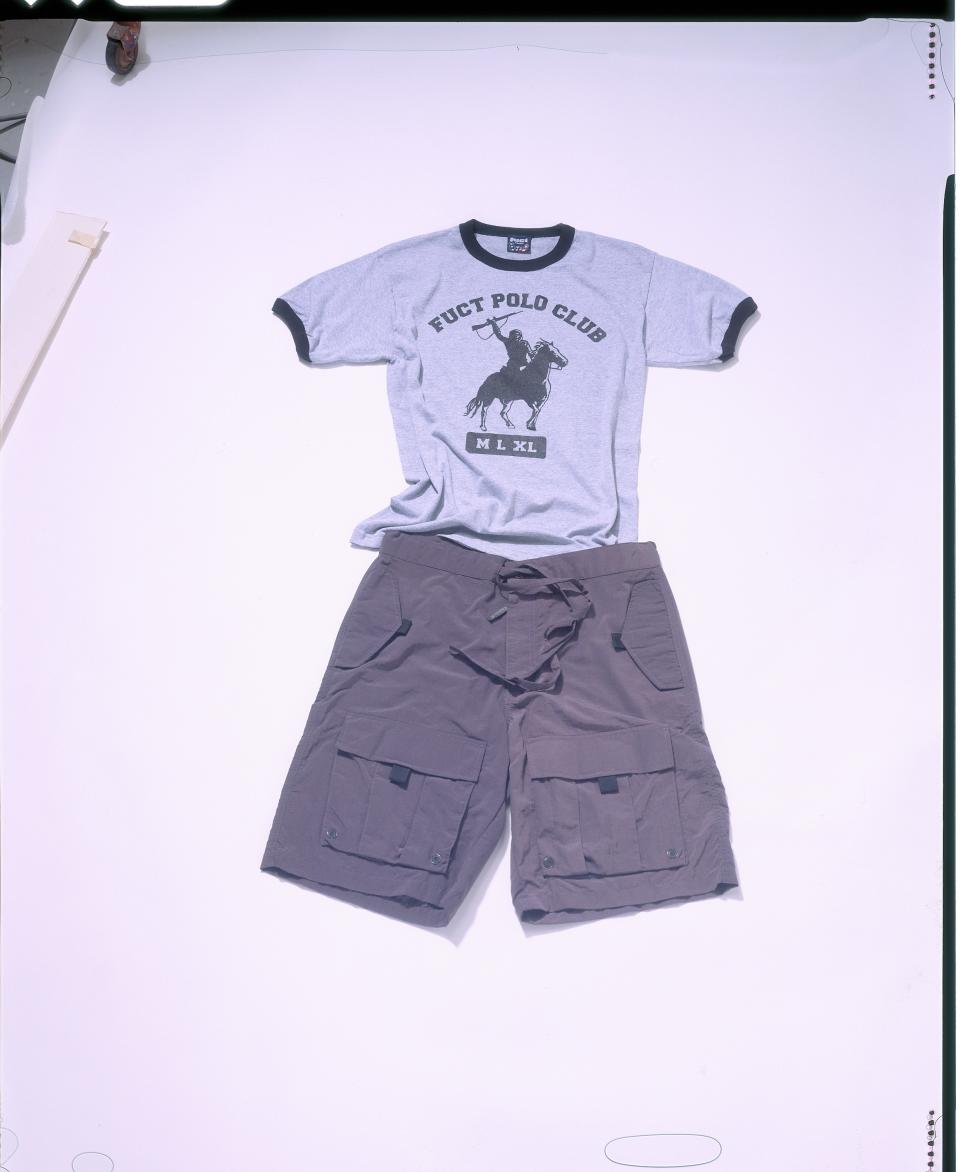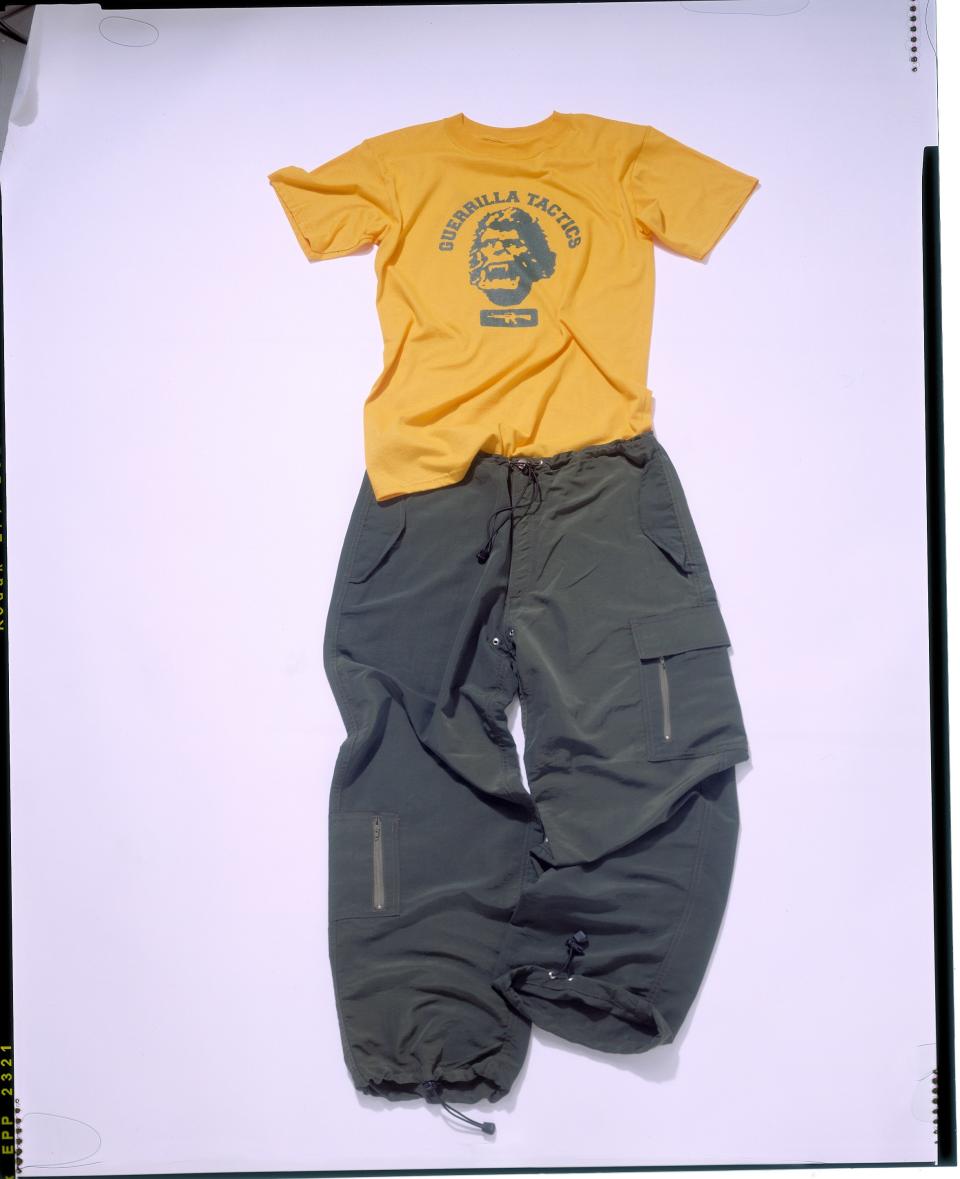How O.G. Streetwear Brand FUCT Took a Free Speech Case All the Way to the Supreme Court
Erik Brunetti has spent the greater part of 30 years testing the foundational idea that in America, all speech is protected under the First Amendment—even speech you disagree with. The vessel through which Brunetti has exercised his right is Fuct, the streetwear brand he founded in 1990. There’s the phonetically-scuzzy name, for one. And take the brand’s imagery and graphics, which have celebrated despots, ripped off other brands’ logos, and generally pissed off polite company for the entirety of Fuct’s history. Fuct became a countercultural force in the ’90s. But every time Brunetti attempted to protect the brand by applying for federal trademark registration, he was told the same thing: sorry, too scandalous.
Now, Brunetti has taken his trademark fight all the way to the Supreme Court, which announced earlier this month that it would hear Iancu v. Brunetti in April. While the case is nominally concerned with Brunetti’s attempts to safeguard his own private expression, it’s really a culmination of Fuct’s radical project of pushing good taste’s malleable boundaries. When the Court hands down its opinion later this year, it very well could decide whether “scandalous” speech is truly protected by the First Amendment.

These days there are plenty of upstart, hypebeast-y brands that baldly traffic in provocation. Fuct has been doing so since artist, designer, and troublemaker par excellence Erik Brunetti founded the seminal streetwear brand in Los Angeles. Back then, Fuct’s logo tees assumed a special place in ’90s youth culture for their under-the-radar-subversiveness. (The logo could have been for a tractor company, but if your teacher read it out loud, you were probably getting sent home from school.)
Since his days as a graffiti bomber in the mid-’80s, Brunetti’s work has been defined by its vocal anti-establishment message, and Fuct embodied the same freedom of expression inherent in spraying your tag on a concrete wall. “We didn’t have a business plan,” Brunetti tells me over the phone from L.A. “Fuct is very for real. It’s from the streets.” Brunetti charged his nascent brand with the social and political language of punk rock, and along with a handful of other labels (including Stüssy and Supreme), Fuct defined the look and feel of early streetwear. Before he founded Supreme, James Jebbia stocked the brand at his store Union in New York; in Nirvana’s most famous photoshoot, from 1993, a young Dave Grohl wears a Fuct hat.
Though today Fuct has little of the cultural capital (and actual capital) of its contemporaries, the label is in some ways the unsung trailblazer of the current moment in fashion: many a streetwear trend can be traced back to Brunetti and Fuct. There’s the logo flip, where a brand stamps its signature on well-known graphic design codes. It’s now ubiquitous, from Shopify brands to the Off-White runway—and Fuct pioneered it in the early ’90s by releasing graphic tees emblazoned with a redesigned Ford logo. They introduced the oversized, super-baggy skate pant, a silhouette that has conquered every corner of the fashion world. And they established a hard-edged, outlaw ethos that streetwear brands have sought to emulate for decades since.

It all started with the name. “Fuct” has come to stand for “Friends U Can’t Trust,” but was conceived, Brunetti explains, more or less as a gag. “When I created the brand, I thought it would be interesting to have a brand that was pronounced phonetically as f-u-c-k-e-d, but was spelled ‘Fuct’ and presented in a very corporate way,” Brunetti says. “We wanted people to question the pronunciation of it when they looked at the logo.” Brunetti says he has been attempting to trademark Fuct since the mid-’90s to no avail. The irony is not lost on him that Fuct, which has flipped logos from Ford, Fila, Pirelli, and Planet of the Apes and other iconic movies, is at the center of a potentially trademark case with potentially sweeping implications. (Brunetti, who learned the ins-and-outs of trademark law by dodging cease-and-desists, actually bought the trademark for the Symbionese Liberation Army’s seven-headed cobra logo.) “I understand that my brand is known for imagery appropriation,” Brunetti says. “But we don’t copy or steal things, we create a dialogue with the viewer. It’s not theft.”
What is theft, Brunetti argues, is the fake Fuct product that pops up across the internet. Which is why in 2011, he and attorney John Sommer—a trademark lawyer and in-house counsel for Stüssy—went to the United States Patent and Trademark Office (USPTO) and applied for a federal trademark. (Stüssy and Fuct do not have a business relationship.) Due to a Truman-era statute called the Lanham Act, which gives the USPTO the power to refuse “immoral” or “scandalous” trademark applications, Sommer estimated their chances of getting Fuct registered to be 5% at best, provided they could find a legal loophole. Sure enough, the USPTO cited the “Scandalous Clause” in denying Fuct’s trademark. But no government bureaucrat could deter the fashion world’s most notorious flamethrower. Brunetti and Sommer appealed to the Trademark Trial and Appeal Board, and were again denied. So they appealed further. “I don’t concede, ever,” Brunetti says. “It’s just not in me. Anyone that knows me or has litigated with me knows I will fight to the end.”

Still, Brunetti and Sommer didn’t expect their legal quest to end with a First Amendment question before the Supreme Court. But then, in 2017, the court handed down a unanimous decision in Matal v. Tam, striking down a clause of the Lanham Act that denied federal trademark protection to disparaging marks. Sommer had been arguing the broader constitutional implications of Fuct’s trademark case from the beginning, and in light of Tam, the federal appeals court in Washington, D.C. agreed to hear Brunetti and Sommer’s case. In a 3-0 victory for Brunetti and Sommer, the court ruled that though the Fuct tradmark is indeed “scandalous,” the Scandalous Clause is unconstitutional, saying “The First Amendment...protects private expression, even private expression which is offensive to a substantial composite of the general public.”
Though that appeared to settle the issue, soon after the Supreme Court agreed to hear the government’s appeal in Iancu v. Brunetti. (Petitioner Andrei Iancu is the director of the USPTO.) And now Brunetti is dug in. The stakes, he says, couldn’t be higher. So high that Sommer, in a rare move, argued that the Supreme Court should hear the government’s appeal, despite the chance that Fuct’s lower court victory could be overturned. In his Supreme Court brief, Sommer lays out the implications if the Scandalous Clause is found constitutional. It would follow, he argues, “that the Government could constitutionally refuse registration of copyright for scandalous works. State and local governments could effectively block unpopular organizations advancing controversial causes (i.e., causes that are scandalous to at least a portion of the public) by refusing to grant building permits, charitable solicitation registrations, business licenses, or sales tax permits.” It’s not a hypothetical situation: in his brief, Sommer points to an example where the city of Ann Arbor required a restaurant to change its name from “Sambo’s” in order to receive a building permit. An odious name, to be sure, but Sommer’s point is that if the government’s argument is correct, then “a town in Texas could effectively prohibit Planned Parenthood from doing business,” he says.
“Free speech is at stake, and all speech is free speech,” adds Brunetti. “It cannot be selective. The moment you start shutting people down because you disagree with them or it hurts your feelings, that’s when we start going down a very slippery slope.” It’s hard not to see echoes of what he means in the opinion by a USPTO Trademark Trial and Appeal Board judge, who characterizes Brunetti’s work by writing: “His assaults on American culture critique capitalism, government, religion and pop culture,” and characterizes the record of Fuct imagery as “one of extreme nihilism.” Sure, Fuct has released products that some might find offensive, like a grimly funny tee commemorating Saddam Hussein’s death in 2006. (The back reads, in part, “You Will Be Missed Homie.”) But it’s easy to forget from the safe confines of streetwear today that the whole movement grew out of the punk value of tweaking the powerful. Should the government be able to decide where and how Fuct is sold, and what protections it is afforded, while its spiritual successors take their VC money and turn out benign, inoffensive product?


If the Supreme Court upholds Fuct’s victory sometime after oral arguments are held in April, the government will have to start issuing registrations for “scandalous” marks—which the government’s lawyers argue will, essentially, lead to a cascade of vile phrases achieving federal trademark protection. (A search on the USPTO trademark database for “fuck” finds 343 applications for marks that use some form of the word.) Sommer points out, however, that the vast majority of trademark applications never become registrations, as they’re not actually used. And Brunetti certainly isn’t trying to parlay a victory into a full-scale Fuct takeover. “Fuct isn’t sold at Gap in the kids section,” he says. “There aren’t 11 year old kids running around in there looking for clothing.” “There’s a market for bachelorette party gifts, but you can't buy them at Walmart,” Sommer adds. “Nobody is going to say that isn't a legitimate line of commerce, so why shouldn't it get protection?”
Ultimately, in the context of both trademark law and First Amendment protections, “this decision helps everyone,” says Brunetti. “It doesn’t just help me, and you, it helps everybody.” One guy it will certainly help is Jason Dill, the founder of skate team and label Fucking Awesome. (Trademark application suspended as of September 17, 2018.) Fucking Awesome’s DIY vibe and dark reinterpration of religious iconography can be traced directly back to Fuct, and when I mention FA, Brunetti reflects on the fact that Fuct, of all the streetwear brands that came after it, is the one going before the Supreme Court to win free speech protections for everyone. “It’s once again Fuct pioneering something, breaking down the gates, breaking down the barriers,” he says. “What’s the phrase? ‘The first guy through the wall bleeds the most so that others may live.’ ”
If the image of a bearded rebel artist and Stüssy’s lawyer appearing in the highest court in the land doesn’t tickle you, maybe this will: the justices and lawyers will likely never even utter the word “Fuct” in the halls of the Supreme Court. Rules of decorum means George Carlin’s “7 Dirty Words,” and their phonetic equivalents, are not allowed. Brunetti is confident he won’t go down as the Carlin of streetwear, the guy who risks it all on the tenuous right to free speech and, ultimately, loses. (The late comedian was arrested in 1972 after performing his “7 Dirty Words” set in Wisconsin.) “I’m certain that once the justices hear John’s argument that they’ll come to the right conclusion. I do have faith in the Supreme Court, actually,” Brunetti says. Whatever happens, don’t expect Fuct to become anything other than the brand that’s been getting kids sent home from school for nearly 30 years. “We’ve never flip flopped on anything,” says Brunetti. “Fuct is very unapologetic, and we stand behind everything we’ve done.”

